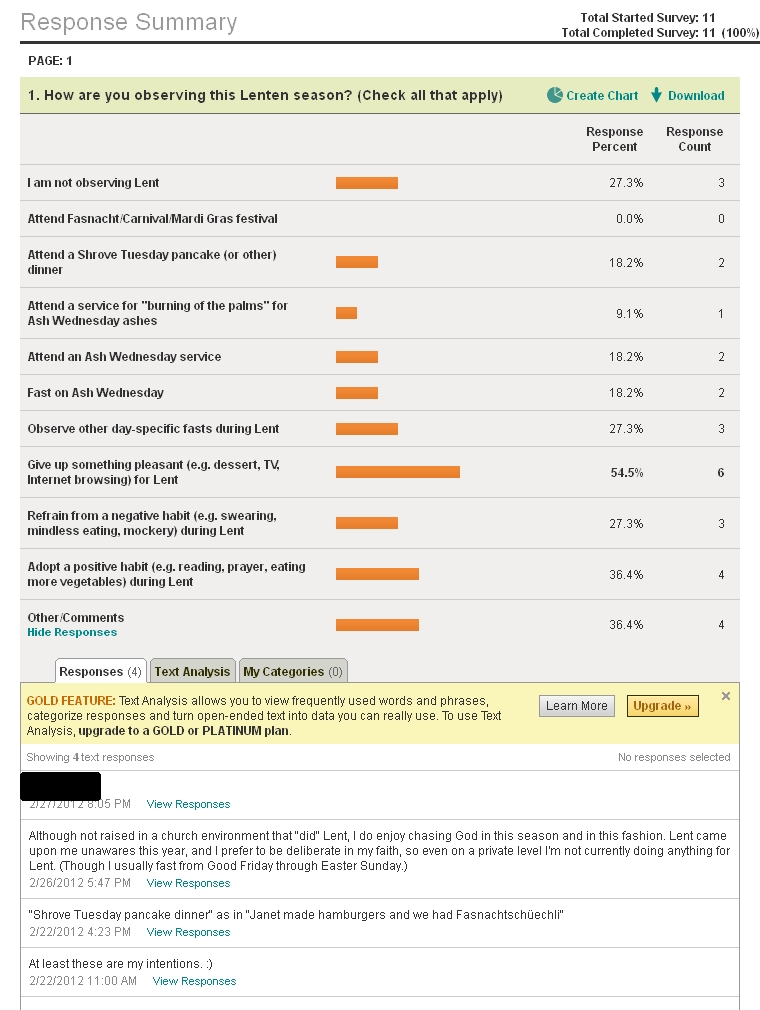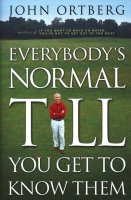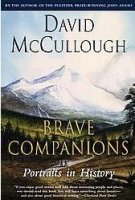We are the Folk Song Army
Everyone of us cares.
We all hate poverty, war and injustice,
Unlike the rest of you squares.
(Tom Lehrer, 1965 or earlier)
With all the publicity given to the Kony 2012 social media campaign, this looks like a good time to bring back Tom Lehrer's wonderful Folk Song Army. (Brief, mild, visual grandchild warning at the very beginning.)
Seriously, there is good reason to worry that this popular campaign will do more harm than good. As this Guardian article explains,
There is no question that the LRA has been one of the most horrifying armed forces in the past half century. But while the video urges spreading the word, signing a pledge, buying an action kit of Kony 2012 bracelets and posters, and of course donating to [advocacy group] Invisible Children, it's hard to understand how this will aid the current slow chase of Kony and his forces through some of the most intractable terrain in the world.
US military advisers have been helping the Ugandan army track the LRA since October, and Invisible Children wants to keep pressure on the US to maintain or improve that assistance. But as there has not been a whisper of possibly withdrawing this support, raising it as the reason for urgency seems slightly odd.
...
The arc of the video tells you that before, no one cared but, thanks to technology and Invisible Children, everyone can now take the necessary action to earn Kony the infamy and arrest or death he deserves.
But since Invisible Children as an organisation began with a few north Americans stumbling into a conflict they didn't know existed and then resolving to help the child victims by making a movie, the base level of great white saviourdom is already high. Implying that finally now, by getting the word out about Kony via celebrities, bracelets and social media, can the LRA be ended plays into this narrative of white rescuers coming to help poor Africans and totally ignores the efforts, good and bad, by Ugandans to fight the LRA for 25 years. I belong to a discussion group of hundreds of Ugandan journalists, and so far only one has been willing to stand up and say this campaign is a good thing (and mainly because it might help more people find Uganda on a map). Nearly everyone else finds Kony 2012 self-aggrandising, patronising and oversimplified.
Remember the war against Franco,
That's the kind where each of us belongs.
Though he may have won all the battles,
We had all the good songs!
So join in the Folk Song Army,
Guitars are the weapons we bring
To the fight against poverty, war, and injustice.
Ready, aim, sing!
Tired of waiting for Netflix to offer anything beyond the second season of the Duggar family's TV show (they're now on Season Six), I discovered the Duggar Family blog, which despite the name is a fan blog, not run by any of the Duggars themselves. Apparently with the blessing of host channel TLC, this site has links to all episodes from the first specials through Season Five!
Now this discovery bodes ill for my overflowing inboxes, my piles of files and files of piles, and my endless backlog of past-due work and future projects. I had to figure out a way to redeem the time, and I did. Because the videos are hosted on YouTube, each episode is divided into three parts of five to ten minutes each. Not only does this slice them into manageable portions that can be squeezed into odd bits of time here and there, but it also suggested my new exercise plan: I only allow myself to watch while exercising. The anticipation of watching a show gets me started, the distraction of the show keeps me going until the end, and the exercise requirement sets a limit on how much I'll watch in a day. I'm a very wimpy exerciser. Some people can watch a whole movie while exercising; I'm doing well to manage eight minutes at at time.
It's a lot more fun to watch the shows guilt free, knowing I'm doing something healthful and productive!
Permalink | Read 2111 times | Comments (2)
Category Everyday Life: [first] [previous] [next] [newest]
The following headlines were presented as the top three on my Orlando Sentinel news feed this morning:
Transgender woman denied drinks during ladies night
Florida suspect accused of eating brain due in court
Mom accused of strangling 2-year-old with bra returns to court
The Sentinel is a mainstream, respected newspaper, with several Pulitzer prizes to its credit. Apparently, supermarket tabloid fare has become the new normal.
Permalink | Read 2378 times | Comments (3)
Category Random Musings: [first] [previous] [next] [newest]
I realized yesterday that—until September, anyway—all of our nephews are now teenagers. And what a fine bunch of young men they are!
Permalink | Read 2402 times | Comments (0)
Category Everyday Life: [first] [previous] [next] [newest]
Here are the results of my trial of SurveyMonkey, which, by the way, I think is pretty cool and hope to find more uses for. I have closed the survey, as there has been plenty of time to respond for those who wish to, and I'm starting to get spam. (That's why one of the comments has been blacked out.)

I considered blacking out the name in the second comment from the bottom, but "Fasnachtschüechli" is as good an identifier. :) That's as close, I note, as anyone got to a Fasnacht/Carnival/Mardi Gras festival. I missed Zurich's by a few days. (But I did enjoy Fasnachtschüechli!)
Thanks to everyone who participated!
Permalink | Read 2258 times | Comments (2)
Category Just for Fun: [first] [previous] [next] [newest]
For six weeks in Switzerland I was the official dishwasher, and enjoyed it. In my appliance hierarchy, a dishwasher ranks below a microwave; chiefly, I'm afraid, because without the latter it's a pain to heat up my cup of tea, which I'm forever leaving somewhere to get cold. Nonetheless, I am inordinately thrilled by one of the first purchases we made upon my return: a Bosch dishwasher, not the top of the line but not the bottom, either.
Our old dishwasher (GE "Potscrubber 1200") didn't owe us a thing, having served us well for a quarter of a century. The cost, spread over time and ignoring inflation, was less than $20 per year.
Does anyone expect an appliance to last 25 years anymore? Believe it or not, the dishwasher was not our oldest appliance, either: we've had our stove and freezer since 1977! The freezer is as good as ever, if you don't count the cosmetic angle; the stove is limping somewhat, but all four burners, the oven, and the microwave still function well. On the positive side, the short life of today's appliances makes one aspect of shopping easier: if you decide you don't like what you bought, you don't have as much time to wait before getting another chance.
For the most part, I loathe shopping and the decision-making that goes with it. Thankfully, my wonderful husband did the preliminary research while I was washing dishes overseas, so the remainder of the process was almost painless. We went with the Bosch on our brother-in-law's recommendation—in his business, he learns a lot about such things—as well as for its German engineering. That it was made in North Carolina is nice, too. We bought it from Lowe's and were very pleased with the installer (who is also an amateur luthier, we discovered). We've had the new machine for four days, and here are a few things I've noticed that are different from our previous dishwasher.
- It's much quieter. We chose not to get the model with a delayed start option, because this is so quiet there's no need to wait to run it, even if you have company or are watching a movie.
- The cleaning process is much longer. In this it is much like European clothes washers, which favor low water consumption over quick work. So far it has not bothered me that it takes over two hours to wash the dishes. There is an express (30-minute) cycle I can use if necessary.
- The default settings include an "I'm done, come unload me" set of five loud, nagging beeps, which repeat at intervals—I don't know for how long, as I've not yet been able to ignore it past two sets. There's a way to turn the volume down, or off altogether, which I may resort to, as the beeps sound like an alarm clock, not what I want to hear at midnight when I'm deep in slumber.
- Ta-da! I've saved the best for last: The dishes get CLEAN! For reasons unknown, our old dishwasher never really worked right after we returned from our two years in Boston. We nursed it along—for years, really—trying one thing and another, with varying success, but finally threw in the towel. Hence the new dishwasher. Since the new models are designed to function better if you don't rinse the dishes first, I'm having to change my well-ingrained habit of getting them pretty much clean beforehand. (To quote the Bosch rep, "It's a dishWASHER; let it do its job.") We're still testing its limits, and marvelling at the clean dishes.
Permalink | Read 2554 times | Comments (3)
Category Everyday Life: [first] [previous] [next] [newest]
Here she is, the incredible Ashley Locheed! On the right is some dude named Englebert Humperdinck. (Not the composer of Hänsel und Gretel.) The venue is in Singapore.
Permalink | Read 2864 times | Comments (0)
Category Everyday Life: [first] [previous] [next] [newest]

Everybody's Normal Till You Get to Know Them by John Ortberg (Zondervan, 2003)
This book started off with two strikes against it, but survived.
First, it was recommended as a “must read” from someone I care about, and coupled with a feeling of time pressure, which in my oddball psyche immediately sets up a cycle of resistance followed by guilt leading to more resistance, etc. Don’t ask me why, but I’ve been like that as long as I can remember. It was decades before I discovered that most of the books recommended to me, as a child, by my parents were really good stories. I was out of school before conceding that some (not all) of the books I was forced by my teachers to read were actually interesting. And I still haven’t finished Colossians Remixed, which I started in 2005…. Stupid, I know. It's not that I don't ever take other people's reading recommendations; many of my favorite books I learned about from someone else. But for whatever reason, obligation + time pressure = irrational barrier.
Second, I realized immediately that it is written in a style I cannot stand, which I call “modern American evangelical pop culture,” though I suspect it’s much more widespread than that. It’s annoying enough that magazine articles use pull quotes and sidebars, which make sustained reading difficult by distracting from the main text, but I find it inexcusable in book format. Ditto the dumbed-down writing, and the highly informal style, more appropriate for blogs than for books.
Despite these annoyances, I finished the book and am glad I read it. The first hurdle was easy to overcome because I was reading a borrowed book with a fixed return deadline. My breakthrough with the second was a stunning realization that I hope will aid me in appreciating more books written in this (all too common) style. (More)
Today's Stone Soup:
Less on the Scrabble side, more on the Boggle side—when you have meals to fix and children to tend, long games don't work well—but this is my family! I don't know Words with Friends; can anyone enlighten me?
Permalink | Read 3130 times | Comments (3)
Category Everyday Life: [first] [previous] [next] [newest] Just for Fun: [first] [previous] [next] [newest]
This survey has no purpose, other than to let me try out SurveyMonkey.
There's supposed to be an embedded survey below. [Update: there isn't.] If not, you can (supposedly) participate by clicking on this link: Take our Lenten Practices Survey now.
A few things I think I'm supposed to add:
- This survey is not intended for respondents under the age of majority in their own country (or 13 years of age in the U.S.). [I don't like age discrimination any more than the next person, but this is legal stuff. Have a parent fill it out for you. Not that I think anyone under 13 is reading my blog.]
- Please be advised that your responses to this survey may not be treated as anonymous by the survey sender. [This means that theoretically I might be able to figure out who you are from your IP address or something. If that bothers you, don't answer.]
- For general privacy concerns, read the SurveyMonkey Privacy Policy [It's actually pretty clear, as these things go.]
- You can create your free online surveys with SurveyMonkey, the world's leading questionnaire tool.
Permalink | Read 2630 times | Comments (5)
Category Just for Fun: [first] [previous] [next] [newest]
Which is worse, losing your technical edge, or losing your technical edge and pretending you didn't?
When I was young, "Made in Japan" implied useless, cheap, junky. I'm thrilled that it now means quite the opposite. Excellence is a good thing, and I see no reason to mourn when other countries compete at our level or even best us in some areas. A little competition keeps us on our toes.
But why does it take innovations from Japan so long to cross the Pacific?
When Janet lived and worked in Japan for a year, she noted that home computers were much less common than in America. I was surprised this was the case for such an advanced nation, but then again, most people don't have clothes dryers there, either. What did surprise me was to learn that in this Japan was not behind America, but ahead. Most Japanese did not need personal computers because they did nearly everything they wanted to on their mobile phones. They accessed the Internet; they paid their bills; they read and composed their e-mails. This was in 2005, years before smartphones took America by storm.
Then there were the toilets. Ever since we visited Janet in Japan I have been wondering why Home Depot doesn't sell Japanese toilets. Now, finally, the National Association of Home Builders includes one in this years showcase home. But why does this review from the Orlando Sentinel pretend it's a new, American invention?
I cannot get the toilet in the master bath out of my mind. Kohler clearly has some smart woman on its design team, because, ladies, this commode is for you.
At the touch of a wall-mounted LED pad that looks like an iPhone, you can auto-magically raise and lower the lid without touching it. That right there is better than a European vacation. And you can heat the seat (men, you will never understand), and play music. Not only that, this smart piece of plumbing sprays, dries and has adjustable flushing. From what I can tell, this toilet of tomorrow does everything but send a urine sample to the lab.
I"m glad American companies are catching on. But what took them so long? And why do we pretend things are new and amazing when they've been around elsewhere for years?
Permalink | Read 2154 times | Comments (0)
Category Random Musings: [first] [previous] [next] [newest]
From this distance, I find it difficult to remember what our children did when. But today I delved back into past diaries, looking for information on when it was we bought our current dishwasher. (More on that in a later post.) Here is something amusing I found:
[Today] Janet had her kindergarten registration. [The first grade aide] filled out [her] card, and when Janet not only knew her phone number and address with zip code, but also spelled "Wightman" for her, she said, "I guess you're ready for kindergarten!"
I had not remembered that Janet could spell her last name before going to kindergarten, I but I guess that when you have a name that everyone misspells, you learn to spell it early. She would have heard her parents answering the "What is your name?" question enough times that for all I know she thought her name was really "Janet Wightman W-I-G-H-T-M-A-N"!
Permalink | Read 2474 times | Comments (2)
Category Everyday Life: [first] [previous] [next] [newest]
I can't be griping all the time. Here's some great news for homeschoolers—and others who don't fit in the standard school model—who have suffered, as we did, from age discrimination by community colleges. Here are some excerpts from the encouraging story in tomorrow's Orlando Sentinel. (I know. Don't ask me why a column dated February 19 is available on the 18th, but it is.)
Two years ago, [Lake-Sumter Community College] refused to admit as a dual-enrollment student a then-12-year-old Center Hill girl who was more than academically qualified to study at the two-year community college. Instead of enthusiastically embracing Anastasia Megan, a brilliant young woman home-schooled by her parents, college administrators took the most backward stance imaginable and fought to keep her out.
The U.S. Department of Education's Office for Civil Rights in Atlanta, to whom Annie's family complained, recently closed the matter after LSCC eliminated its age requirement, trained employees to stop discriminating and offered Annie a chance to apply.
However, by the time LSCC offered to consider Annie in July 2011, it was clear that her course of study already had outstripped what the community college could provide. Starting in August, Annie, now 14, and another of the triplets, her brother Zigmund, will attend Queens University in Ontario, Canada. She was among 300 successful applicants to the college of business and commerce from a field of 5,000. ... Annie's brother is entering the university's engineering school (Annie's second choice), and the third triplet, Elizabeth, is enrolled in a high-school International Baccalaureate program.
[S]uch a ruling by the Office for Civil Rights is likely to have an effect on community colleges statewide. It's all about access in community colleges, and that's the way it ought to be. The Megan family neither asked for nor received a nickel in damages. The Megans didn't hire a lawyer. LSCC, however, spent about $12,000 on attorney fees fighting to discriminate against a kid whose achievements were remarkable. Asked why the college ever would fight to keep any student out, [College President Charles Mojock] said: "That was then, and this is now. We live and learn too."
After six nephews, four grandsons, and 29 years, we once again have two little girls who fit these adorable outfits. Picture credit for the second goes to Heather and Jon Daley; the first is scanned from an old, washed out Polaroid-style print, but you get the idea.
Janet and Heather, December 1982
Joy and Faith, January 2012
Permalink | Read 2527 times | Comments (4)
Category Children & Family Issues: [first] [previous] [next] [newest]

Brave Companions: Portraits in History by David McCullough (Simon & Schuster, 1992)
I need to remember to read more from David McCullough. The man can write.
Brave Companions deserves a long, thoughtful review. I could write a blog post on any and all of these fourteen portraits (thirteen of people, one of a city) and three additional essays. McCullough draws stunning pictures of people—famous and unknown, artists and aviators, writers and scientists—whose actions and personalities made (and are making) history.
But I barely had time to read the book, let alone write about it, and I must now return it to its rightful owner. If you, however, find yourself with sufficient time to enjoy a short book (232 pages) that's easy to read in short bursts (except that you won't want to put it down), you can't go wrong with Brave Companions.
I'd read it for the writing alone; the history, personality, and adventures are a bonus.





